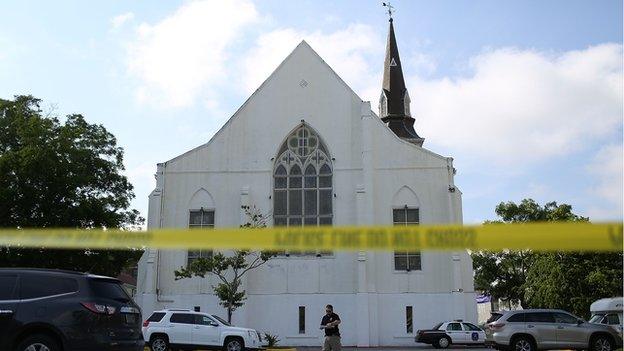Las Vegas shootings: Is the gunman a terrorist?
- Published
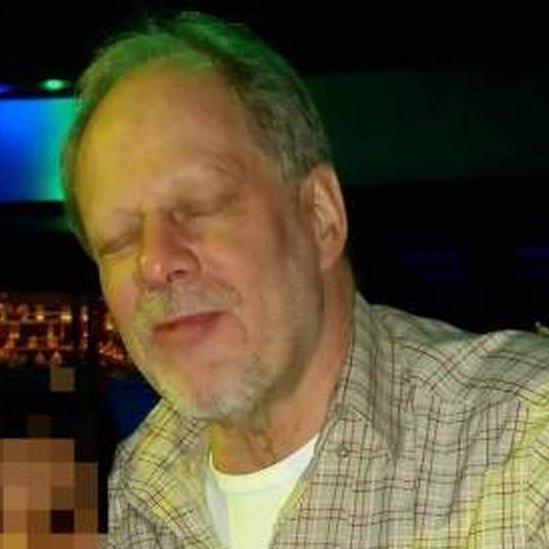
Stephen Paddock has been identified by police as the man behind the deadliest shooting in modern US history
As details emerge about the Las Vegas gunman who killed at least 58 people and injured more than 500 others, an online debate has begun about why Stephen Paddock has not been labelled a terrorist.
Instead the 64-year-old who opened fire from the 32nd floor of the Mandalay Bay Hotel towards an open-air music festival on Sunday evening has been described by news outlets as a "lone wolf", a "granddad", a "gambler", and a "former accountant", but not a terrorist.
We do not know yet what motivated Paddock to carry out the deadly attack. There has been no link found to international terrorism and no confirmation of mental illness.
Yet on social media, many have been pointing out that if Paddock had been a Muslim, the term "terrorist" would have been used almost immediately to describe him, as a link to Islamist terrorism would be assumed even without evidence.
Celebrities, TV personalities and academics have all been discussing why this hasn't happened in this case.
Allow X content?
This article contains content provided by X. We ask for your permission before anything is loaded, as they may be using cookies and other technologies. You may want to read X’s cookie policy, external and privacy policy, external before accepting. To view this content choose ‘accept and continue’.
According to Nevada state law, external, an "act of terrorism" is described as follows: "Any act that involves the use of violence intended to cause great bodily harm or death to the general population."
At federal level, the US defines "domestic terrorism" as activities that meet three criteria - "dangerous to human life that violate federal or state law", those that are intended to intimidate or coerce civilians or governments, and which occur primarily within the US.
The FBI, too, suggests there must be an intent to "intimidate or coerce a government, the civilian population, or any segment thereof, in furtherance of political or social objectives".
This element seems to be key - is the perpetrator of violence not only attempting to cause mass harm but trying to influence government or further a particular ideology?
Many on social media shared an image, external of a definition of Nevada state law and questioned why, despite the clear outline, the sheriff of the Las Vegas Metropolitan Police Department Joseph Lombardo said during a press conference about Paddock: "We do not know what his belief system was at this time. Right now, we believe it is a sole actor, a lone-wolf-type actor."
Allow X content?
This article contains content provided by X. We ask for your permission before anything is loaded, as they may be using cookies and other technologies. You may want to read X’s cookie policy, external and privacy policy, external before accepting. To view this content choose ‘accept and continue’.
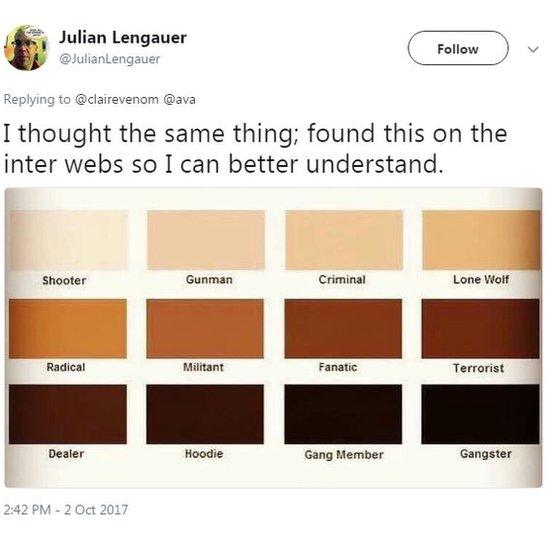
On Twitter the phrase "lone wolf" has been used more than 200,000 times since Monday's attack. The words "terrorist attack" have been used more than 170,000 times as people argued about why there seemed to be a clear disparity between how white suspects and those of colour are described, external.
On Facebook the discussion has also been escalating. Mursal in Indonesia said:, external "He's not considered an international terrorist? Maybe because his face is not Arabic!"
Muslim American Facebook user Mahmoud ElAwadi , externalexpressed his sadness at hearing the news, but described how the attack would not affect white people in the way his family was affected by Islamist attacks.
"Every mass shooting means my wife's life is in danger because she chose to cover her hair, that my son will be attacked at school because his name is Mohamed, that my 4 year old daughter will be treated unfairly because she speaks Arabic, unless the terrorist is a white and Christian then suddenly he is a mentally sick person and everything is normal."
Value judgements
At the BBC there is clear guidance on the use of the words terrorist, or terrorism. BBC editorial guidance says:
"There is no agreed consensus on what constitutes a terrorist or terrorist act. The use of the word will frequently involve a value judgement.
"As such, we should not change the word 'terrorist' when quoting someone else, but we should avoid using it ourselves.
"This should not mean that we avoid conveying the reality and horror of a particular act; rather we should consider how our use of language will affect our reputation for objective journalism."
Despite an overwhelming majority of comments criticising officials and the media for not labelling Paddock a terrorist, there were some counter arguments and suggestions as to why.
Allow X content?
This article contains content provided by X. We ask for your permission before anything is loaded, as they may be using cookies and other technologies. You may want to read X’s cookie policy, external and privacy policy, external before accepting. To view this content choose ‘accept and continue’.
Allow X content?
This article contains content provided by X. We ask for your permission before anything is loaded, as they may be using cookies and other technologies. You may want to read X’s cookie policy, external and privacy policy, external before accepting. To view this content choose ‘accept and continue’.
Allow X content?
This article contains content provided by X. We ask for your permission before anything is loaded, as they may be using cookies and other technologies. You may want to read X’s cookie policy, external and privacy policy, external before accepting. To view this content choose ‘accept and continue’.
By UGC and Social News Team, additional reporting by BBC Reality Check
- Published10 October 2017
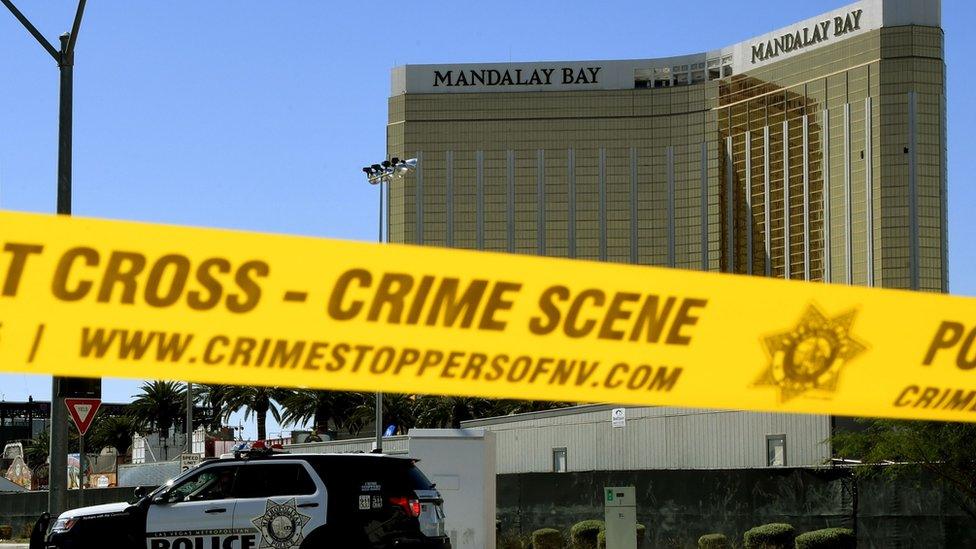
- Published5 October 2017
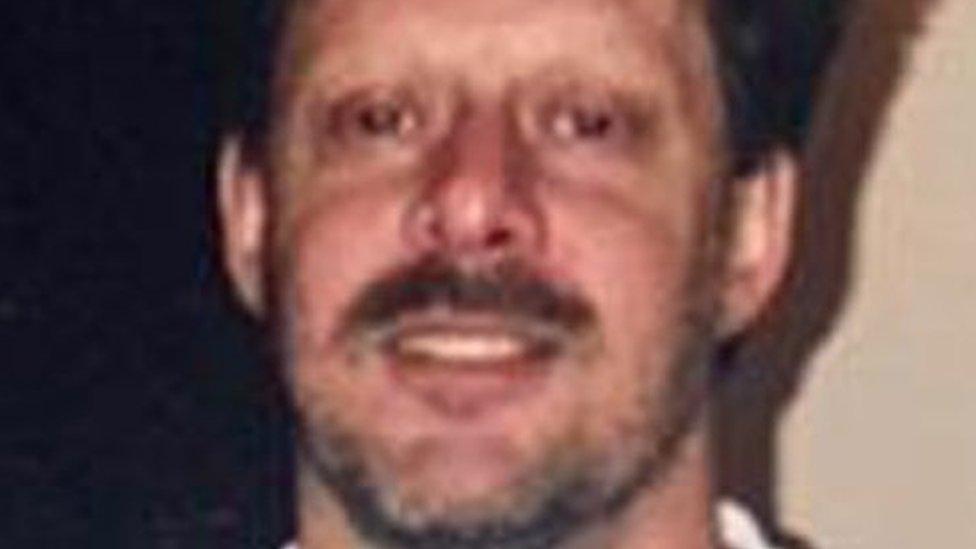
- Published3 October 2017
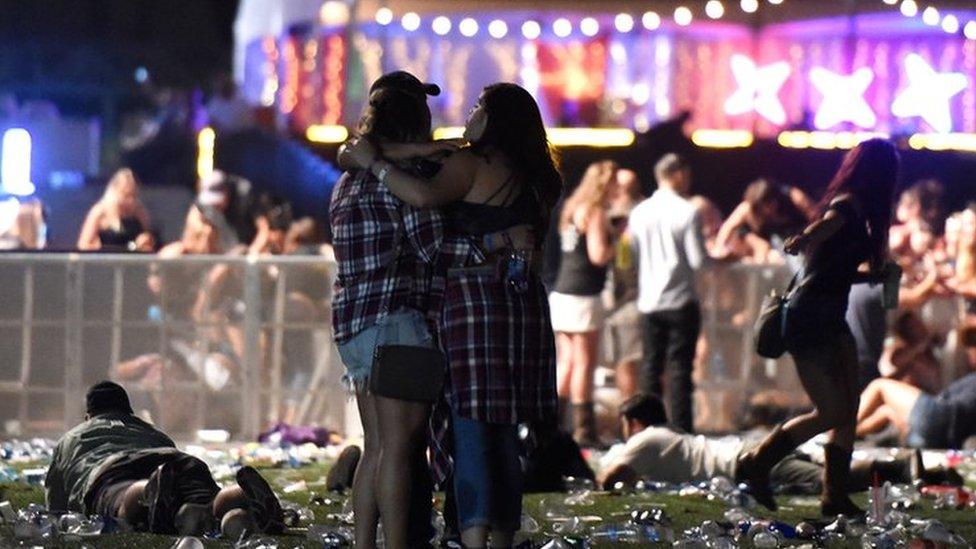
- Published2 October 2017
- Published28 March 2023
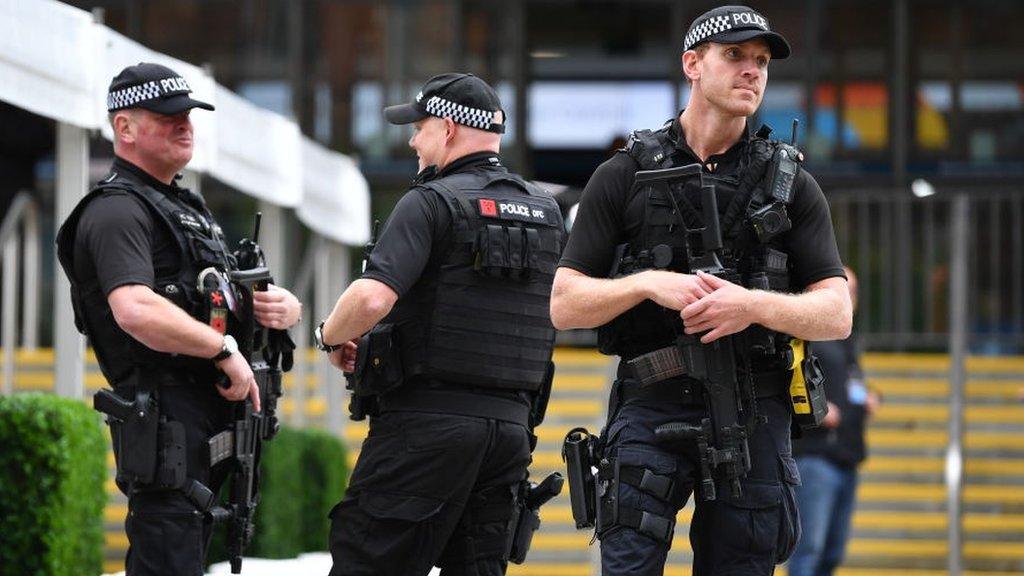
- Published20 June 2015
